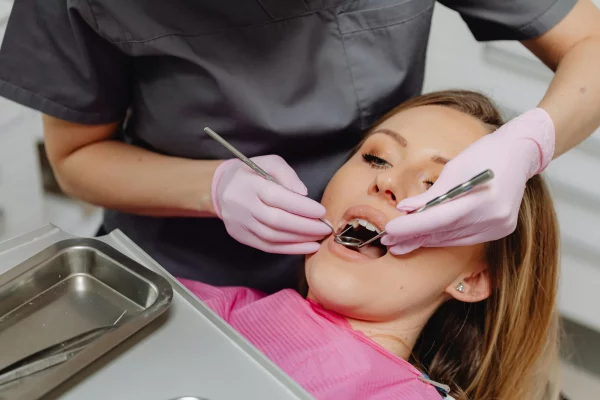Preserving your natural teeth is, quite honestly, one of the smartest moves you can make for your overall health. Once significant dental issues arise, the consequences are far from trivial, think chronic discomfort, tooth loss, and, yes, some pretty staggering expenses. The term “oral cripple” may sound overly dramatic, but, unfortunately, it captures the reality for many who neglect oral health.
Preventive dentistry is not just about brushing and flossing, though those are the basics everyone should be doing anyway. It’s a multi-layered approach: regular dental examinations, professional cleanings, fluoride applications, prompt detection of issues, and let’s not forget actual education about habits that can make or break your teeth and gums. Approaching oral care this way isn’t just about aesthetics; it’s a strategic investment in your long-term well-being.
With preventive measures, you can sidestep the discomfort and complications of cavities, gum disease, and infections, all while avoiding the emotional and financial strain of extensive dental procedures. Maintaining oral health is inseparable from maintaining general health; it’s not merely about a pleasing smile but about sustaining comfort and function throughout your life.
What Is Preventive Dentistry?
Preventive dentistry is the kind of treatments and remedies used to prevent the dental cavity from occurring. Preventive dentistry encompasses a comprehensive set of practices and professional interventions designed to safeguard oral health before issues have a chance to develop. These measures include regular dental examinations, professional cleanings, application of dental sealants, fluoride treatments, and routine at-home care such as brushing and flossing. Collectively, these strategies establish a robust defense against prevalent dental problems.
Crucially, preventive dentistry is beneficial across all age groups. For children, it forms the basis for strong, healthy teeth and mitigates the risk of early decay. Adolescents and adults benefit from reduced incidence of cavities, periodontal disease, and enamel deterioration. For older adults, preventive measures help maintain existing teeth and reduce the likelihood of complications from oral infections, which can have broader implications for general health.
Ultimately, the central objective is straightforward yet impactful: to intercept dental problems before they arise. Consistent adherence to preventive care not only minimizes the need for extensive and potentially costly treatments but also supports sustained oral health and overall well-being throughout an individual’s life.
Why Preventive Dental Care Matters
Preventive dental care, often underestimated, serves as a fundamental pillar in maintaining optimal oral health. Rather than merely functioning as a routine checkup, preventive dentistry represents a proactive approach, intervening before problems escalate. Regular professional cleanings, comprehensive exams, and consistent oral hygiene at home significantly decrease the risk of cavities, periodontal disease, and eventual tooth loss.
To draw an analogy, maintaining oral health mirrors the ongoing maintenance required to keep a vehicle in reliable condition. Early intervention and routine care mitigate the likelihood of more severe issues, both in dental and systemic health contexts. Indeed, research has revealed notable associations between oral hygiene and broader health outcomes, including cardiovascular disease and diabetes.
Fortunately, preventive dental care is both accessible and cost-effective. Integrating these practices into one’s lifestyle promotes long-term oral function and aesthetic confidence. Ultimately, investing in prevention is an investment in enduring health, comfort, and quality of life.
Lower Dental Costs Over Time
Oral health prevention delivers both advantageous results and economic savings in dental care costs. Dental checkups and cleanings come with considerably lower prices than restorative procedures that involve crowns and root canals and dental implants. Preventive dental measures that resolve small dental problems at their earliest stages help eliminate the requirement for advanced medical procedures which cost much more. Your wallet and health benefits when you spend money on preventive dental care since it represents an investment.
You can escape both absence from work and emergency dental appointments and stressful moments caused by unexpected pain through preventive dental care. Making a small maintenance visit once every six months allows you to save substantial funds on possible dental expenses in coming years.
Better Teeth and Gums
Patients can achieve success in treating early-stage gum disease (gingivitis) because intervention during this stage remains highly effective. You can avoid serious conditions like periodontitis and maintain tooth retention when you go to check-ups because the dentist can detect problems at their early stages. The practice of preventive dentistry offers patients professional scaling together with polishing as procedures to eliminate plaque and tartar which stays beyond the reach of brushing. Dental sealants as protective coatings provide cavity prevention for molars by being especially helpful for children and beneficial for adults who face decay risks. Your enamel receives fluoride treatments that boost its strength thus it protects teeth better from bacterial and food acid exposure.
Regular use of these basic and non-invasive procedures will significantly decrease your chance of dental problems along with needing expensive dental procedures. Along with maintaining proper dental and gum health your preventive dental care protects your general well-being because weak oral wellness has established links to diabetes and heart disease and systemic conditions.
Reduced Emergencies
Regular dental care avoidance leads to sustained tooth pain together with severe infections that force costly emergency medical interventions. Intense discomfort together with facial enlargement becomes necessary for performing root canals or tooth extractions when tooth cavities or gum inflammation starts. The practice of preventive dental care will help you avoid unexpected pain from threatening dental problems. Your dentist can identify minor worrying issues during checkups because this enables early treatment before severe complications develop that could affect your daily routine.
The practice of preventive care generates straightforward dental costs with predictable payments while simultaneously delivering complete smile protection. By taking charge of your wellness and comfort you gain substantial control over your health. By staying away from emergency dental clinics you will preserve your time at work or school and prevent disturbed nights which leads to a better overall sense of wellness. Like today you acknowledge preventive measures which produce future relief from dental agony with fewer regrets thus your teeth need proper attention.
How Preventive Dentistry Supports Overall Health
It’s easy to overlook, but the mouth is actually the main entryway for everything we consume food, beverages, even the air we breathe. This makes oral health a crucial aspect of overall well-being, though it’s often underestimated. There’s substantial research linking poor oral health to significant medical conditions, including diabetes, cardiovascular disease, respiratory infections, and even adverse pregnancy outcomes such as low birth weight.
Fortunately, the risk posed by these conditions can be reduced through consistent preventive dental care and sound oral hygiene. Regular dental checkups, professional cleanings, and daily habits like brushing and flossing do much more than maintain the appearance of one’s smile, they play a key role in supporting systemic health. In essence, preventive dentistry should not be regarded as a minor concern, but as an essential component of comprehensive healthcare. Prioritizing oral health now can contribute significantly to a longer, healthier, and more comfortable life in the future.
Common Myths about Preventive Dentistry
| Myth | Truth |
| “If I brush and floss, I don’t need a dentist.” | Professional instruments sanitize spaces brushing can’t access. |
| “Dental visits are only for fixing problems.” | Preventive care prevents issues from arising in the beginning. |
| “Children don’t need dental checkups.” | Children are particularly susceptible to cavities and are helped by early treatment. |
What’s Included in a Preventive Dental Visit?
Preventive dental visits are far more comprehensive than a simple cleaning or cursory examination. They serve as a systematic approach to safeguarding both oral health and overall well-being. The primary objective of these visits is to identify potential issues at an early stage, intervene before complications arise, and maintain optimal health of the teeth and gums. Regardless of whether one is attending their initial appointment or has an established history of regular visits, having a clear understanding of the process can enhance confidence and reinforce commitment to proper oral hygiene practices. The following analysis will outline the typical components of a preventive dental visit and underscore the significance of each step.
Thorough Dental Examinations
During an assessment your dentist examines each area of your oral cavity by inspecting the teeth and gums as well as evaluating your bite. Your dentist evaluates dental cavities and gum disease symptoms together with your tooth alignment and inspect concealed signs of tooth wear during the examination. Your dentist will review any current dental work to check whether your fillings and crowns continue performing correctly. The check-up mission targets early problem discovery which enables patients to maintain their healthy teeth alongside a strong healthy smile.
Dental Cleaning
Every mouth contains spots which stay out of reach when brushing and flossing because they accumulate bacteria. Under the care of a trained dental hygienist plaque and hardened tartar are completely eliminated through gentle but thorough procedures which surpass home care abilities. The cleaning procedure stops gum disease and tooth decay while making teeth easier to clean and produce noticeable enhanced brightness. Your hygienist will evaluate plaque buildup spots during cleaning to provide you with custom advice for enhancing your brushing and flossing habits.
Treatments with Fluoride
Fluoride treatment plays a crucial role in preventive dental care by strengthening the enamel, the outer protective layer of your teeth and making it more resistant to decay. During your visit, a concentrated fluoride solution is applied to your teeth, typically in the form of a gel, foam, or varnish. This quick, painless application helps replenish essential minerals that have been worn away by acids from food, drink, and bacteria. Over time, regular fluoride treatments can significantly reduce your risk of developing cavities, especially if you’re prone to decay or have areas of enamel erosion. It’s a small step that provides powerful, long-lasting protection for your smile.
Dental Sealants
The application of dental sealants creates a protective layer which effectively blocks cavity development especially in the hard-to-reach tooth sockets where brush clearing is impractical. Your dentist uses a simple method to place the sealed plastic layer directly over tooth chewing surfaces of molars. After application the hardened layer creates a protective barrier that blocks acids and plaque preventing dental decay from occurring. Patients needing long-term protection against dental problems alongside patients at high risk of dental issues may benefit from the lasting duration of sealants which extends to multiple years.
Preventive Dentistry for Different Life Stages

Oral health is a dynamic aspect of overall well-being, evolving in complexity from infancy through the later stages of life. While the particular dental concerns may shift ranging from the emergence of baby teeth and orthodontic interventions in adolescence to restorative procedures often required in older adulthood, the necessity for preventive care remains unchanged. Foundational habits such as regular brushing, flossing, and professional evaluations are indispensable at every stage.
Each period of life presents unique challenges to oral health. By anticipating these changes and remaining informed about age-specific risks, individuals can implement effective strategies to maintain the integrity of their teeth and gums. In sum, a lifelong commitment to preventive dentistry is crucial for sustaining optimal oral health across the lifespan.
| Children | Early visits create habits for a lifetime. Sealants and fluoride prevent cavities. Tracking tooth and jaw development. |
| Adults | Preserve your gums healthy and your enamel strong. Early identification of wear, cracks, or decay. |
| Seniors | Prevent tooth loss and maintain natural teeth. Monitor for dry mouth, oral cancer hazards, and gums. |
How Frequently Should You See a Dentist?
It’s a common misconception that if you’re not experiencing pain, there’s no need to visit the dentist. In reality, many dental issues progress silently, without overt symptoms, until they reach an advanced stage. For this reason, the standard recommendation is to schedule dental checkups every six months, regardless of whether you notice any discomfort. These regular preventive appointments are crucial for identifying problems such as cavities, periodontal disease, enamel degradation, and even oral cancer at an early, more manageable stage.
Neglecting these routine visits may seem convenient, but it often results in more extensive and expensive treatment down the line. Consistent dental care preserves oral health, maintains your smile, and supports overall well-being. Ultimately, preventive care is both more effective and less costly than addressing dental issues after they escalate.
Preventive Care at Home

Caring for your teeth isn’t just about your trips to the dentist. Here are a few easy tips to keep that smile healthy and bright at home:
- Brush teeth twice daily with fluoride toothpaste.
- Be sure to floss once a day to remove plaque between teeth.
- Use mouthwash to help reduce bacteria.
- Attempt to minimize sugary snacks and acidic drinks.
- Drink plenty of water to help your saliva production.
The G&P Dental Approach to Preventive Care
At G&P Dental, we take preventive dentistry seriously. Our team offers:
- Full exams and cleanings
- Personalized oral hygiene guidance
- Fluoride treatments and sealants
- Early detection using leading diagnostic technology
- We want your experiences to be comfortable, educational, and proactive.
Frequently Asked Questions (FAQs)
1. Is preventive dentistry covered by insurance plans?
Absolutely! Most dental insurance plans fully cover preventive care because it helps avoid more costly procedures down the line. This typically includes routine cleanings, dental exams, fluoride treatments, and sometimes X-rays. By taking advantage of these covered services, you can maintain a healthier smile and reduce the risk of serious dental problems. It’s a smart way to protect both your oral health and your wallet.
2. What age should a child start receiving preventive dental care?
When children turn one or get their first tooth, whichever comes first, it’s time for their first dental visit. These early appointments help set the stage for a lifetime of healthy habits. They allow the dentist to check for any early signs of decay, ensure teeth are developing properly, and provide guidance on brushing and nutrition. Starting young also helps children feel more comfortable with the dental environment, reducing fear later on. Early prevention is key to avoiding bigger problems down the road.
3. Can preventive dentistry really reduce the risk of serious disease?
Yes, research has clearly shown a strong connection between oral health and systemic conditions like heart disease, diabetes, and even stroke. That’s because the mouth is a gateway to the rest of the body when it’s healthy, your overall health benefits too. The rewards of preventive dentistry are undeniable. Don’t wait until pain or problems force you into the chair. By staying ahead with regular care, you can enjoy healthy teeth and gums for life. Preventive dentistry not only keeps you feeling and looking your best, it also saves you time, money, and unnecessary discomfort in the long run.
Want to avoid cavities, gum disease, and costly dental work? Preventive dentistry is the key to keeping your smile healthy, strong, and beautiful for life. At GPD Dental, we use personalized care plans, advanced screenings, and gentle cleanings to stop problems before they start. It’s simple, painless, and can save you thousands down the road. Schedule your preventive care visit today and take control of your oral health—starting now.


